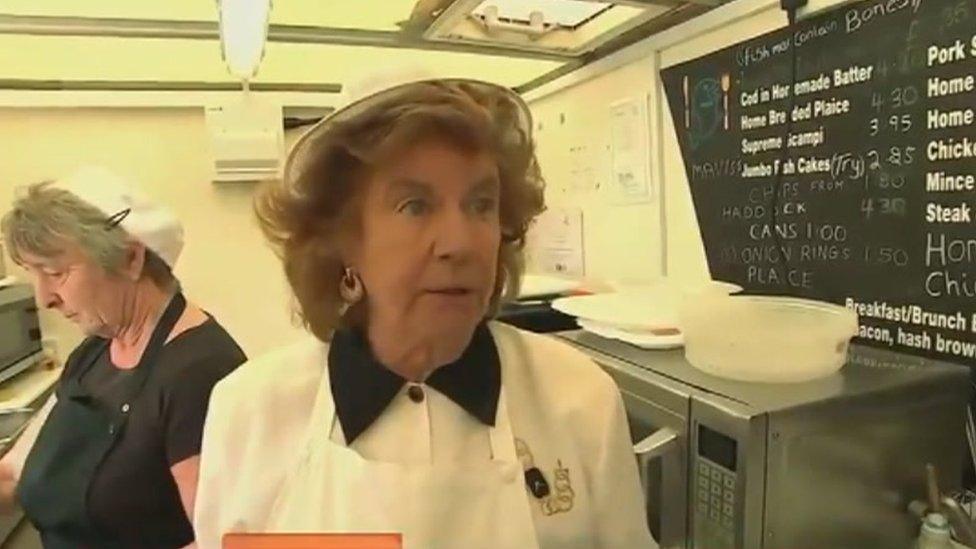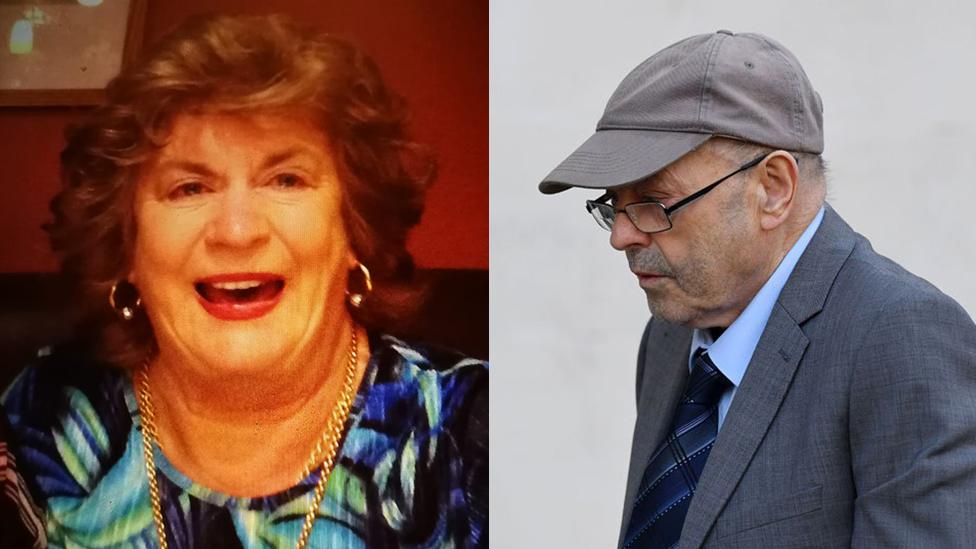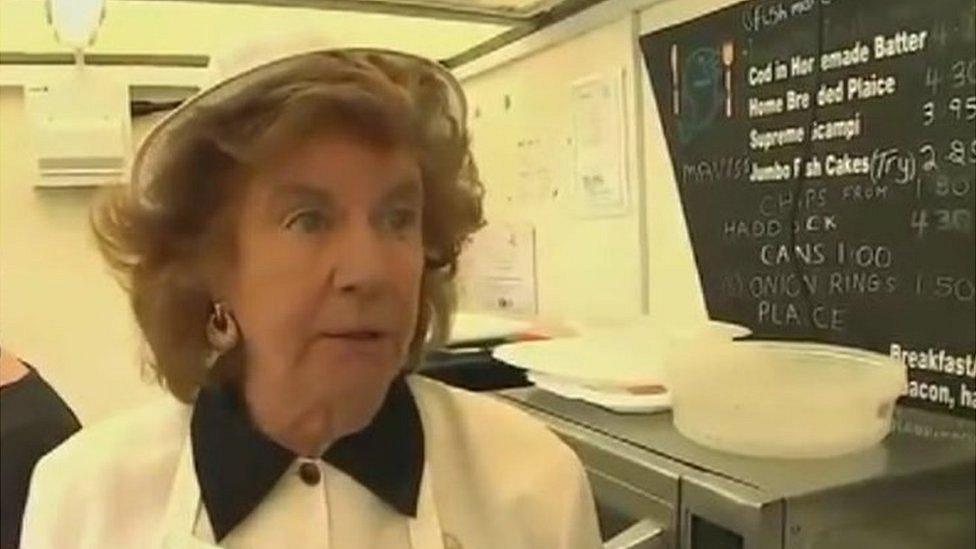Hermon chip shop death 'no review' decision re-examined
- Published

Mavis Bran died six days after being scalded with hot oil at her chip shop business
A decision not to hold a review into the death of a chip shop owner who claimed her husband threw boiling oil over her is being looked at again.
Mavis Bran, 69, died six days after suffering burns to half her body in October 2018 in the Chipoteria in Hermon, Carmarthenshire.
Her husband Geoffrey, 72, was acquitted of her murder the following year.
A safety partnership decided not to hold a domestic homicide review into the events leading up to her death.
Reviews can be held even if there is no murder conviction and are designed to assess whether anything about the death of someone alleging domestic violence can help prevent future incidents.
Mr Bran's trial heard allegations of violence towards his wife, including that he was the one who had thrown the fat fryer at her.
However, Carmarthenshire Community Safety Partnership did not order a domestic homicide review (DHR) at the time.
It has now said in a statement: "The decision whether or not to complete a DHR in this case will be revisited in the coming weeks."
During the trial in November 2019, a friend of Mrs Bran told the court the victim had confided in her Mr Bran had been violent and she was frightened he was going to kill her.
Mr Bran was cleared of both murder and manslaughter by a jury at Swansea Crown Court.
'Making the future safer'
Campaigners Rachel Williams and Janine Roderick, from the SafeLives charity, which campaigns against domestic abuse, wrote to the council expressing "deep concern" that a review was not conducted.
Ms Williams said: "Why would you not do a DHR when Mavis said what she said to her friend? It just doesn't make sense."
Frank Mullane, chief executive of Advocacy After Fatal Domestic Abuse, campaigned to ensure DHRs became law in 2011 and has quality-assured more than 800 of the reviews.
He said: "The focus is on making the future safer.
"We should re-run the last few years of the deceased's life and this time work out ways that might have kept that person alive. Then apply that learning to improve services for current victims and to better inform the community."
Related topics
- Published19 November 2019

- Published12 November 2019

- Published11 November 2019

- Published13 November 2019

- Published14 November 2019

- Published15 November 2019
